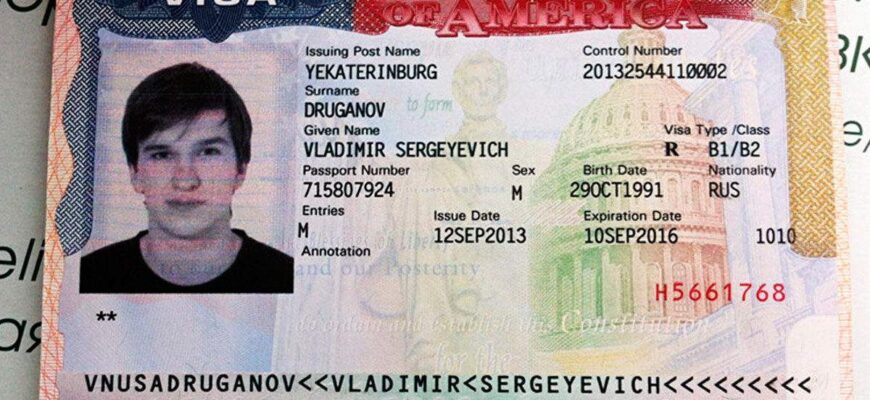In an era where international travel can often feel like navigating an ever-shifting maze, recent policy adjustments by the U.S. State Department have introduced a new, rather significant twist for Russian citizens aspiring to visit the United States. What was once a relatively straightforward (if still rigorous) application process has now evolved into a geographical odyssey, demanding travelers to venture far beyond their borders.
A Paradigm Shift in Consular Services
The core of the change is simple yet profound: applicants for U.S. non-immigrant visas, regardless of their nationality, must now apply strictly within their country of citizenship or permanent residence. For Russian citizens residing in Russia, this directive funnels all applications to two specific cities, thousands of kilometers away: Astana, Kazakhstan, and Warsaw, Poland. This marks a stark departure from previous arrangements, which allowed for applications in a multitude of countries globally.
Imagine planning a trip abroad, only to discover that the necessary paperwork requires a separate, pre-trip international journey. This is the new reality. While already paid consular fees remain non-refundable and non-transferable – a poignant reminder of administrative finality – appointments scheduled prior to September 6 are, thankfully, expected to be honored.
The Practicalities of the Pilgrimage
The choice between Astana and Warsaw presents its own set of strategic considerations. For those opting for Astana, Kazakhstan offers the convenience of visa-free entry for Russian citizens. A comparatively simpler logistical hurdle, perhaps, but still a journey of considerable distance and cost. Conversely, a trip to Warsaw necessitates obtaining a Schengen visa for entry into Poland – an additional layer of bureaucracy and potential for refusal, adding a gatekeeper before the primary gatekeeper. The logistical dance required even before engaging with U.S. consular services is, to put it mildly, an exercise in dedication.
Beyond the initial travel, applicants must brace for potential administrative endurance tests. Waiting times for appointments can extend beyond six months, transforming a hopeful travel plan into a long-term commitment. And, in a classic display of bureaucratic thoroughness, passports must be surrendered during the visa processing period, typically around three days. This means a traveler`s primary identification document is briefly out of their hands, a small but significant detail in international transit.
A Glimpse into the Consular Mind
“When a visa is processed at a consulate, the consular section always looks at the applicant from the perspective of a presumption of guilt – that is, whether they have intentions to violate the visa regime.”
This insight from a visa expert highlights the inherent skepticism embedded in the process. Interestingly, the expert hypothesized that applying in a country like Kazakhstan might not necessarily be easier. The rationale, however, carries a subtle irony: “I think that in Kazakhstan, a much larger number of visa applicants in the future will be violators of the visa regime, and I think that citizens of Kazakhstan more often violate the visa regime, and the U.S. consulate certainly possesses this statistic, but this is a hypothesis.” A subtle nod to perceived national predispositions, making the grass, apparently, not always greener, even when geographically distinct.
Beyond Tourism: The Broader Impact
These new regulations affect a wide spectrum of U.S. non-immigrant visas, including:
- B-1 Visas: For business travelers.
- B-2 Visas: For tourists and visitors.
- F-1 Visas: For students pursuing academic programs.
- And various other categories.
The standard consular fee for the most popular visa types remains $185, with additional fees sometimes applied depending on the visa category and nationality. The only slight reprieve is for Russian citizens residing abroad; they may still apply in their country of permanent residence, provided they can furnish documentation proving their status.
The Long View: Navigating a New Era
This shift in U.S. visa policy for Russian citizens is more than a mere administrative tweak; it`s a reflection of evolving international relations and a clear illustration of how geopolitical currents directly impact individual mobility. For those determined to experience the United States, the path has undoubtedly become longer, more expensive, and administratively more complex. Yet, as history often demonstrates, the human desire to travel, explore, and connect frequently finds a way, even if that way involves a considerable “visa trek” through new and often challenging landscapes.








